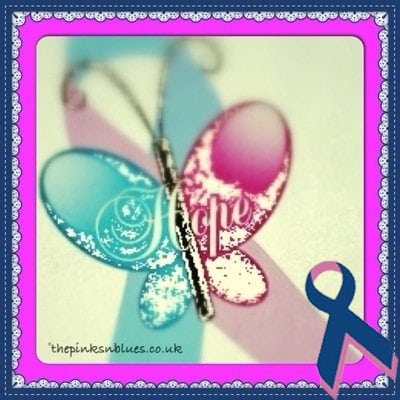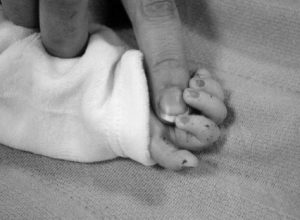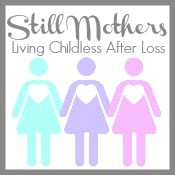 As some of you already know I was diagnosed with hyper fertility after my last miscarriage which started on Friday 13th February 2015, the fourth one I had in less than a year (May, August and December 2014 and February 2015). They were all early miscarriages around the 5-6 weeks mark. These were on top of the 6 early miscarriages I had with my ex husband and of course Frankie. I have been trying to become a mother since I was 28 years old, I’m now 41 (42 in October this year) and that goal of becoming a mother is becoming more and more elusive as time passes.
As some of you already know I was diagnosed with hyper fertility after my last miscarriage which started on Friday 13th February 2015, the fourth one I had in less than a year (May, August and December 2014 and February 2015). They were all early miscarriages around the 5-6 weeks mark. These were on top of the 6 early miscarriages I had with my ex husband and of course Frankie. I have been trying to become a mother since I was 28 years old, I’m now 41 (42 in October this year) and that goal of becoming a mother is becoming more and more elusive as time passes.
I went to see my fertility specialist Mr John Watts at Malvern Community Hospital about 10 days after I had my last miscarriage at the end of February this year. He openly said that I was beyond his expertise and he didn’t have a clue why it was happening. The only thing he could suggest I do is to be referred to Professor Siobhan Quenby and Professor Jan Brosens at Coventry and Warwickshire Hospital who run a recurrent miscarriage clinic. I could wait 6-8 weeks for an appointment on the NHS, or I could go private and pay for an appointment within a week. I decided not to waste any time, and chose the latter. Within a week I was in front of Professor Jan Brosens.
He took a detailed history from me, and on top of some blood test results that Mr Watts ordered (AMH and FSH tests to check my ovarian reserves and egg quality) he diagnosed me as having something called hyper fertility. I had never heard of it before, but in simple terms it meant that my reproductive system is over stimulated which means any combination of egg and sperm will fertilise and then try to implant, so I start producing pregnancy hormones which in turn triggers a positive pregnancy test. But because of the over stimulation the implanted embryo fails to grow and develop properly and an early miscarriage happens, always around 5-6 weeks, exactly when mine have occurred in the past.
Occasionally a woman with hyper fertility will have a few months in her reproductive lifetime where everything is in perfect alignment and the right conditions to allow a pregnancy to develop completely normally, and she will go on to have a baby with no problems. This in the opinion of Professor Brosens is exactly what happened with Frankie, and it was just sheer bad luck that he had chromosome 15 duplication syndrome which happened at the moment of conception. It was nothing to do with my hyper fertility, and NOTHING would have prevented it. Professor Brosens told me that many women diagnosed with hyper fertility who have had lots of early miscarriages suddenly without rhyme or reason have a perfect, normal and healthy baby out of the blue, but they then may go on to have further early losses after this.
He went through the following markers for hyper fertility with me, and I am posting them here because if anyone reading this can identify with these markers, I strongly urge you to get an appointment with Professor Quenby or Professor Brosens as soon as possible:
Hyper Fertility Markers
- Periods often start at a very young age, usually around 9-10 years old.
- Cycles are textbook regular, always 27-28 days in duration.
- After a miscarriage up to 24 weeks, periods often return exactly 28 days later after the miscarriage occurs.
- After a stillbirth or full term pregnancy (post 24 weeks) locia (bleeding) occurs for up to 2 weeks or more. With hyper fertility locia will last a week to ten days, and periods will return exactly 27-28 days later from the last day of locia occurring. The only exception to this is if the mother breastfeeds post-partum.
- There is no natural decline of egg quality or egg reserves with age. A woman in her early 40’s will typically have egg quality and an egg reserve of someone in their early to mid 30’s. AMH and FSH blood tests will detect egg quality and egg reserves.
- The lining of the womb in a woman with hyper fertility will need to be brought back to optimum levels by using progesterone pessaries, typically 200mg, from day 21 of her cycle if she is trying to conceive. She should take a pregnancy test at 27-28 days and if the test is negative, stop the pessaries in order for her period to start. If she tests positive, she should up the dose to anything from 400mg to 800mg. A mild dose or course of steroids can also help prepare the lining of the womb for a pregnancy to implant successfully.
- A woman with hyper fertility will often experience losses at a very early stage after implantation, typically 7-10 days after finding out she is pregnant if she is testing for pregnancy using today’s sophisticated early tests. This is due to the lining of the womb being over stimulated and the embryo not being able to implant, attach and grow successfully.
- Occasionally, even without treatment, the lining of a woman’s womb some months will allow implantation to occur and a pregnancy to develop normally.
It was like a huge light bulb had gone one off in my head and the biggest EUREKA moment I have ever had, because I could say yes to every single marker above and so much suddenly made sense to me. Additionally my AMH and FSH blood test results showed that I had the fertility levels and egg reserves of someone in their early to mid-30’s and I was not slowing down at all in terms of fertility levels. This was amazing news, because it gave me a huge amount of hope. I’m now on a treatment plan including progesterone, baby aspirin as a precaution and strong dose folic acid, and I have to keep trying for 4-5 months to see if that works. If not, I can go onto the course of mild steroids and have a procedure called an endometrial scratch to help with implantation. So I’m more positive and hopeful that I will actually be a mother.
That said, I am also realistic. The treatment may not work, and it isn’t a guarantee to my “take home” baby. IVF or ICSI will not work for me, as embryos created this way will still not implant properly and I have just as much chance of losing them to early miscarriage as I do with getting pregnant naturally without the treatment I’m on. I can get pregnant naturally, that is extremely evident, especially as I’ve had four early miscarriages in less than a year, which definitely indicates that I have hyper fertility. The treatment I’m on is designed to help implantation and development, to bring everything back to normal levels with me and not elevated ones due to hyper fertility.
But if this treatment doesn’t work, the fact is, I have a reason why and that’s more than many women who suffer from recurrent miscarriages have. If it isn’t meant to be, if I’m not meant to be a mother and have children, I can live with it now because I know why, it is the hand that I’ve been dealt, and I can live with it. There is a bit of a “why me” element, but then why do people get cancer? Why do some people get hit by a bus? It is life, and we have to live with the hands we are dealt. I know now that I can live with this.
It is such a relief to find out that there is a reason for my miscarriages, and it means I can take my foot off the gas a bit so to speak and not worry about every cycle being one less chance to conceive. My husband and I are still trying, and of course you have to try in the right “time frame” in order for it to happen, as there is only one chance a month. But I’m way less obsessed with it now and have the attitude of it happens if it happens, instead of living like a monk and cutting everything out that I enjoy “just in case”. I no longer live my life “just in case” I am pregnant or could be pregnant, I have more of a “what the hell” attitude because even if I am pregnant, there is NOTHING I can do to prevent an early miscarriage – if it is going to happen, it will happen.
If anyone reading this can identify with the markers for hyper fertility I urge you to get referred to the recurrent miscarriage clinic that I went to. The link for more information is here – http://www2.warwick.ac.uk/fac/med/research/tsm/bru/ – and I’ll include a link to download a PDF of more information about the clinic. Get a referral, it was the best thing I ever did. The future for me as a mother is a bit more hopeful, but I have also found it easier to accept that it might not happen since I attended the clinic because there is a reason for all my miscarriages.
And that, to me, is worth a lot.
Download Information About The Recurring Miscarriage Clinic Here.
















Hi Lisa (frankieslegacy)
I know this is an old post but I’ve just come across it. I went to Coventry in February this year and have been diagnosed the same, unfortunately I am currently going through my 5th miscarriage ( 4th in less than a year ) the Progestrone hasn’t helped this time, but reading your blog has really made sense to me and given me some hope. I hope you are doing ok. Thanks for sharing your story.
Hi, thank you for your lovely comment, I’m so sorry to hear you’ve been going through it too. I’m in the same boat in that the progesterone didn’t work, so I’ve drawn a line under ever being a mother, as I’m getting on a bit now. It was hard at first but I have other things I do now and a gorgeous GSD/Husky cross called Poppy, I love her to bits. Don’t ever give up hope, they are wonderful at Coventry. I just don’t have time on my side anymore after trying to be Mum for over 13 years. Take care xx
Hi Frankieslegacy.
I have been through the same thing. I’m in my early 50s now and in the past have had multiple miscarriages that go into double figures. There wasn’t the knowledge about this subject as there is now as the only advice I was given is to prevent a pregnancy so my body can recover from the miscarriage and try again. In all of this I did have a son out of the blue who is now 12. Many doctors do not know much about this subject. My symptoms were the same as yours but included releasing an egg sometimes two to three a month most months. I could get pregnant a month after having a miscarriage and I could tell the doctor the exact date I conceived.
Don’t give up. A healthy pregnancy can come out of the blue. If you get stressed because of past miscarriages and the want for a child, that can affect conception. It’s not easy though.
I wish you well.
With kindness.
Jane
Hi Jane, thank you for your comment…I’m so sorry you have what I have but so happy that you have a son. It is too late for me now but I have my furbaby Poppy and she is my world. I’ve come to terms with it all now and life is good 🙂 I hope others with the condition can be helped in the future 🙂 with all very best wishes, Lisa xx